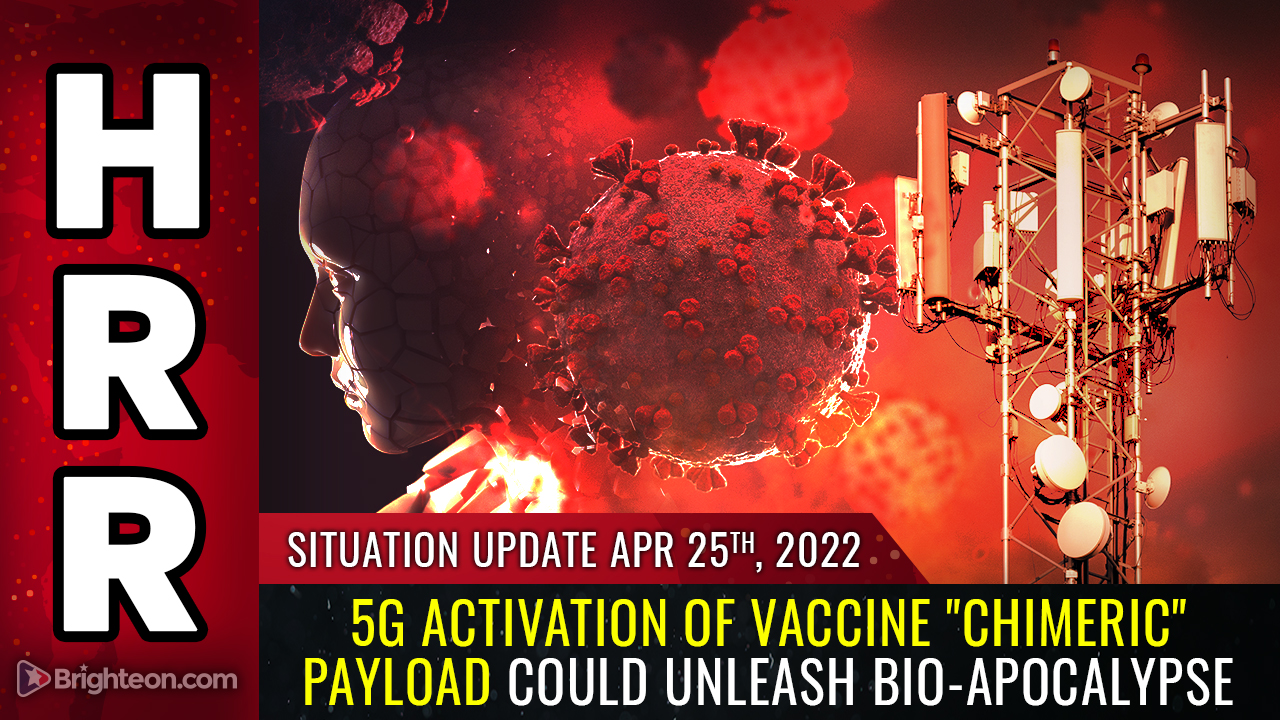Radiation exposure can increase risk of hypertension – even in LOW doses
11/17/2020 / By Virgilio Marin

A person regularly exposed to low-dose radiation is more likely to increase his risk of hypertension, says a research team from Russia. In their report, which was published in the journal Hypertension, the team looked at the health records of people working in a nuclear power plant in Russia and found that nearly 40 percent were diagnosed with hypertension. The team also noted that the incidence of hypertension in workers was significantly associated with the cumulative dose of radiation.
The results are worrying, as it has implications not only for workers’ health but also for the general public. For everyone’s safety, protection principles against radiation and dose limits should be strictly implemented, said the researchers.
But these measures will be challenging, especially with the impending rollout of 5G in cell phones in several countries. This particular technology has been linked to electromagnetic radiation, although the electromagnetic waves it sends out differ from those emitted in a nuclear plant.
Low doses of radiation linked to hypertension
Based on earlier studies, exposure to high doses of radiation may increase a person’s risk of developing — even dying from — cardiovascular disease. However, little information exists on the link between radiation exposure and high blood pressure.
For the report, the team looked at over 22,000 workers at the Mayak Production Association, a location where employees are regularly exposed to low doses of ionizing radiation. The workers included were hired between 1948 and 1982 and had stayed with the company for an average of 18 years. All workers had comprehensive health check-ups, were provided screening tests and given advanced evaluations every five years.
After their analysis, the researchers found that more than 8,400 workers — or 38 percent of the group — were diagnosed with hypertension. They noted that this incidence was likely associated with the cumulative dose of radiation absorbed by the workers. To note, the incidence of people with hypertension in Mayak was higher than that of Japanese survivors of the 1945 bombing but lower than estimates for clean-up workers of the Chernobyl nuclear accident.
“We now have evidence suggesting that radiation exposure may also lead to increased risks of hypertension, cardiovascular disease and cerebrovascular disease, as well,” said Tamara Azizova, the corresponding author for the report. She also added that while radiation exposure was typically associated with cancer, the findings also highlighted the health consequences of radiation exposure, in particular, among non-cancer health outcomes.
Findings pose serious concerns about 5G danger
The study’s findings come with the emergence of 5G technology in many countries, including the United States. But for people to use 5G, base stations must first be installed every few hundred feet since the electromagnetic waves it uses cannot travel long distances. This network densification, in particular, has sparked concerns about how 5G can also increase exposure to harmful radiation.
What’s more concerning is that 5G is being rolled out even though its effects on human health are still unclear. Niels Kuster, the founder and director of the Swiss Foundation for Research on Information Technologies in Society, said that it remains unknown how radiation from 5G technology interferes with the body. (Related: Users beware: Health threats of smartphone radiation and wireless devices.)
Some studies link telecommunication equipment to cancer, and a handful of people living near cell towers previously reported experiencing headaches, nausea or rashes. Nothing, however, is conclusive.
While the jury is still out about what exactly radiation from 5G does to the body, the International Agency for Research on Cancer in France decided to classify electromagnetic radiation as “possibly carcinogenic to humans.”
Radiation.news has more on the effects of radiation on health.
Sources include:
Submit a correction >>
Tagged Under:
5g, 5G rollout, base stations, cardiovascular disease, heart health, hypertension, ionizing radiation, nuclear power plant, radiation, radiation exposure, research
This article may contain statements that reflect the opinion of the author
RECENT NEWS & ARTICLES
COPYRIGHT © 2017 5GALERT.COM
All content posted on this site is protected under Free Speech. 5Galert.com is not responsible for content written by contributing authors. The information on this site is provided for educational and entertainment purposes only. It is not intended as a substitute for professional advice of any kind. 5Galert.com assumes no responsibility for the use or misuse of this material. All trademarks, registered trademarks and service marks mentioned on this site are the property of their respective owners.





















